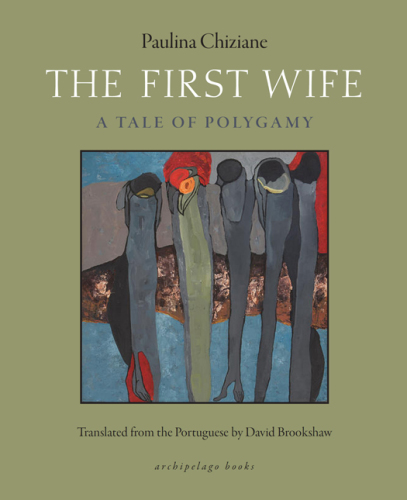
The First Wife
A Tale of Polygamy
کتاب های مرتبط
- اطلاعات
- نقد و بررسی
- دیدگاه کاربران
نقد و بررسی

May 16, 2016
Chiziane is widely considered one of Mozambique’s most important authors. Largely unknown outside of Africa, this new translation of her 2003 José Craveirinha Prize–winning novel will hopefully bring her name into larger recognition. Chiziane refers to herself as a storyteller instead of a writer; this seemingly minor distinction speaks volumes about the style of her work. The story of Rami and her journey toward something resembling freedom is told in lyrical, circular prose that heightens the universality of the situation in which she finds herself. Rami has been married to Tony for 20 years. They live in Maputo, where they have status and wealth, but have settled into an unhappy routine. He cheats on her with a progression of women. Eventually Rami’s unhappiness leads her to confront one such woman, Ju, who reveals that there is another, Luisa, and another, Saly, and finally Maua. The extent of Tony’s wanderings leaves Rami with few options. What follows is a careful examination of tradition clashing with modernity, most prevalently the place of women within Mozambique’s society, and within the world in general. The focus on first wife Rami and the feeling of inevitability in Tony’s continued pursuit of more “cattle” allows Chiziane the freedom to ask big questions: are women meant to suffer at the hands of men, and are they unable to find actualization and happiness for themselves? The style also allows her to make this tale of Mozambique universal and at times ambiguous. Slowly, painfully, as tradition looms in the background, Rami and the other women in Tony’s life begin to discover a space for themselves and what it can mean to be more than a part of a “loving hexagon.”

May 15, 2016
A man's five wives band together, against all odds, to demand what's rightfully theirs. Rami has been married to her husband, Tony, for 20 years. They live in southern Mozambique, and they have five children. Tony's been a good husband to Rami: as chief of police, he's a successful, professional man, and he's provided well for his family. But lately he's been absent--conspicuously so--and Rami sets out to discover his whereabouts. She finds that she isn't the only woman in his life. Tony, it turns out, has been stringing along not just one or two, but four other women, each of them with a trail of children. Rami is bewildered, devastated, and furious in turn. She confronts the other women, but they won't be scared off: like Rami, they depend on Tony for their livelihoods. Rami tries a few different strategies. To learn to hold on to her husband, she takes lessons in love; she also visits a dealer in fortunes and then the wife of a seer. Then Rami shifts tactics. Instead of squabbling, she and the other wives agree to band together. They establish a conjugal rota, according to which Tony will spend a week with each wife, in prescribed order. They force Tony to grant each one of them legitimacy, which brings with it various rights, security, and comfort. Rami encourages each of the women to establish her own small business so they won't be so dependent on Tony. They seem to be flourishing. But nothing in their world is really stable or fair. As Rami thinks: "To have only one love in life? Baloney! Only women, forever stupid, swallow that story. Men love every day. Every time the sun comes up, off they go in search of new passions, new emotions, while we wait forever more for a love that's gone old and feeble. All men are polygamous." This novel by Chiziane, the first published Mozambiquan female novelist, is daring, biting in its critique. It describes the plight of women caught between Mozambique's traditional culture and its colonized societies. In that sense, it's an effective work. But it begins to bow beneath the weight of its own responsibility. Chiziane aims for an emotional pitch that can't be sustained for the entire length of the novel. Her metaphors are heavy, relentless, following one upon the other. She might have done with a lighter touch. A brave but heavy-handed work about the plight of women in a patriarchal society.
COPYRIGHT(2016) Kirkus Reviews, ALL RIGHTS RESERVED.

Starred review from June 15, 2016
Mozambique's first woman novelist, Chiziane has crafted a story that is at once an affirmation of African feminism and a rousingly entertaining tale of female friendship that would please any fan of best-selling women's fiction. A dynamic mother of five who sees herself as a modern woman, Rami despairs because husband Tony, the police chief, is rarely at home. Her challenge to rival Julieta starts with fisticuffs and ends with wary friendship--and the realization that Tony has left Julieta and their children for another woman. In fact, Tony lays claim to five women, and though Rami initially seeks sometimes mocking advice for getting him back for herself--interestingly, not just generational differences but cultural differences between northern and southern Mozambique show up here--she eventually turns polygamy on its head and successfully schemes with her rival "wives" to put Tony on the spot. VERDICT Both informed reading and terrific fun for a wide range of readers.
Copyright 2016 Library Journal, LLC Used with permission.

























دیدگاه کاربران